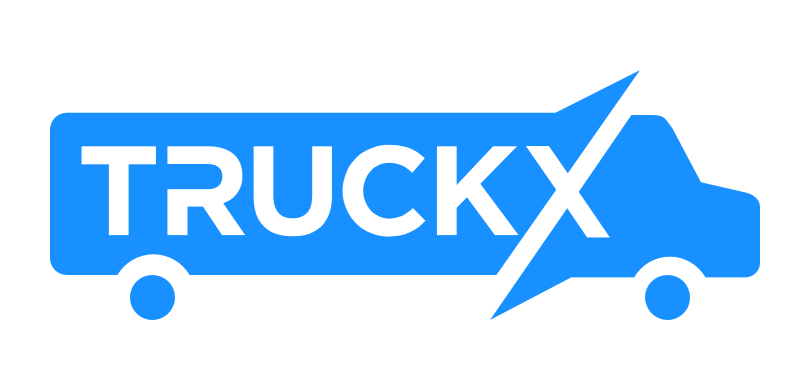What You Need To Know About Dashcams For Trucks
- Tapan Chaudhari
- September 22, 2021
- 11:32 am
The eCommerce industry went up 39% in the first quarter of 2021 to reach $196.66 billion while it was pegged in value at $141.52 billion in Q1 2020. The outbreak of the Covid-19 pandemic is seen as one of the reasons behind the massive rise.
Customers expect eCommerce retailers to provide them with speedy deliveries. Last-mile delivery refers to the final movements of the goods to the customers. It is a crucial part of the supply chain and logistics cycle. As per a study, 56% of the customers will not return to an eCommerce store if there is a delay in shipping and delivery.
The trucking industry, therefore, plays a crucial role in the last mile by transporting the goods from the hubs to the customers’ location.
Trucking – Role and Significance in Last-Mile Deliveries
The rise of eCommerce has led to immense competition in the industry. All the players wish to stay ahead of the others and last-mile delivery is a crucial component in their customer experience strategies. Customers prefer companies offering faster deliveries alongside other factors, such as quality of goods, prices, etc.
The trucking industry takes the onus of fulfilling these demands by meeting the delivery expectations of the customers.
80% of customers in the present times are willing to pay additional to receive the product the same or within two days. The customers place such orders with the retailers and it comes down to the trucking companies to pick and deliver the products on time. Trucking companies carry out route planning, allocation of tasks, route tracking, customer communications, and delivery to accomplish the fulfillment of the orders.
The last mile is also seen as the last impression as the customer experience levels can largely scale down if there are delays. Trucking companies are the ones responsible to efficiently carry out these processes to improve the satisfaction and engagement levels of the customers.
Problems and Challenges for Trucking Companies
Last-mile delivery brings up many issues and challenges for trucking companies. It involves significant investment by the trucking organizations to carry out optimized fleet operations to deliver in these compressed circumstances. The stakes are high for the trucking company too. For instance, the cost of delivery can nearly double if the initial delivery attempt does not complete and requires re-scheduling. Effective route planning can be one of the resolutions to these issues.
Many trucking companies may use inadequate technologies and tools. These may contribute to the challenges and can even attract higher costs. For example, traditional ways of route management cannot predict the possible hurdles in advance. They can also not generate real-time alerts and notifications for better route management resulting in unnecessary delays and cost impacts.
Several unpredictable situations can also arise in the last-mile delivery. These can include sudden changes in the weather conditions, on-road collisions leading to traffic congestions, vehicle breakdowns, etc. The absence of a plan to deal with such situations can worsen the operations of the trucking companies.
The world is still dealing with the Covid-19 pandemic with several countries experiencing the third wave. The trucking companies need to follow Covid-19 regulations to ensure the safety of their workers and customers while continuing with the business operations. Last-mile deliveries under such circumstances have become far more challenging with an increase in demand and limited resources.
Technology Solutions
There are different technology solutions available to assist in efficient last-mile deliveries.
Route planning and management are some of the most significant areas impacting the last mile. Trucking companies must have real-time route details to guide the drivers on the optimal route to follow. Automated asset trackers can be extremely useful in the process. These can enable the trucking managers and owners to have real-time knowledge of the route. With GPS tracking, the managers can guide the drivers on the changes in the route to meet the delivery targets.
Companies can also provide customers with the latest delivery status. Real-time information of the goods with constant alerts and notifications add to the overall customer experience.
The quality of the products mustn’t deteriorate in the process of quickly delivering the products to the customers. Several goods may require specific temperature settings to maintain the quality levels. Automated temperature and humidity sensors can be very useful for trucking organizations to avoid any damages to the products. Door sensors can also generate alerts if the drivers forget to shut the doors or leave them open by mistake.
To Sum it Up
If you were in Missouri, Ohio, or Iowa recently, you may have gotten a keen appreciation of the value of the job that truckers do in this context. In many parts of these states, shortages of gas were reported in gas stations. This is despite, oil production and processing being at all-time highs across the nation. The problem was driver shortages were preventing this gas from traveling the “last mile” from the terminal to the gas station. So, no truckers, no gas. This is a great reminder of the crucial bridging role played by the trucking industry in our economy -over long distances and short!
Up to 40% of the overall logistics costs may come from the last mile. Trucking organizations have an extremely crucial role in the last-mile delivery while managing the problems and challenges around it. Various things may go wrong in the process resulting in adverse impacts on the customer experience. The trucking industry is evolving and adapting to the sudden rise in the demand for faster deliveries to meet the needs of the customers while keeping the costs, quality, and efficiency in check.
